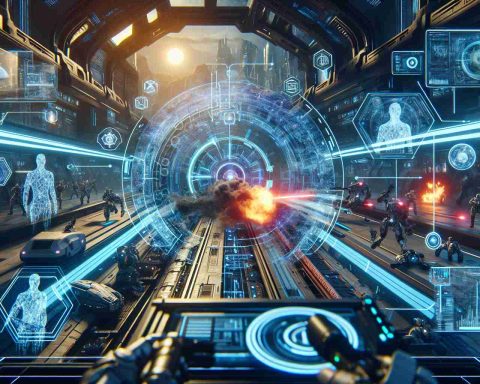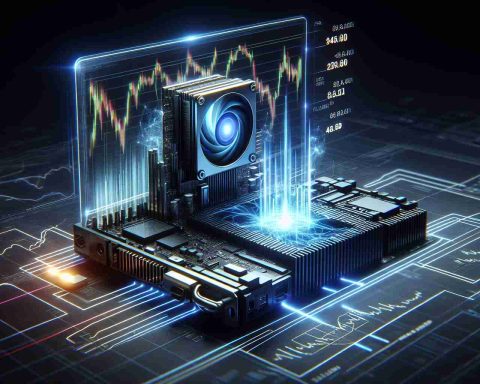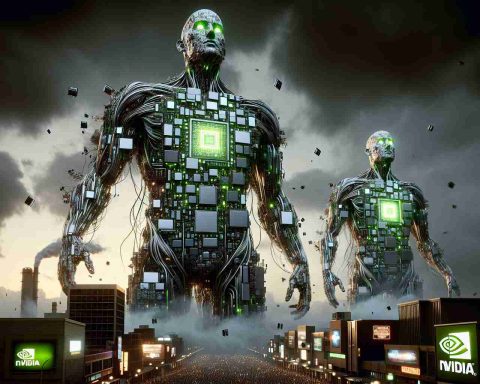A leap in graphics performance is here! NVIDIA’s latest graphics card, the RTX 5090, has reportedly outperformed its predecessor, the RTX 4090, by an impressive margin in Blender benchmarking tests. According to recent leaks, the RTX 5090 boasts a 36% performance boost over the RTX 4090, while its counterpart, the RTX 5090D, shows a 28% increase compared to the RTX 4090D.
This surge in performance aligns with other preliminary benchmarks circulating online, sparking excitement among gaming enthusiasts and professionals alike. Industry observers are noting that early reviewers may have unintentionally leaked these results while connected to the Internet, leading to a premature showcase of the card’s capabilities.
Despite these strong figures, it’s crucial to approach them with caution. The tests were conducted using different versions of Blender, which complicates direct comparisons. Furthermore, expectations rooted in earlier rumors surrounding the RTX 5090 were built on the potential enhancements of DLSS 4 and Multi Frame Generation, which may result in inflated performance claims.
As anticipation builds for the official reviews set to be released shortly, experts suggest keeping expectations realistic. The raw gaming performance of the RTX 5090 is projected to hover around 30% better than that of the RTX 4090, especially in scenarios that do not leverage NVIDIA’s sophisticated frame generation technologies.
The Broader Impact of Enhanced Graphics Performance
NVIDIA’s latest advancement in graphics processing—particularly through the RTX 5090—heralds not just a leap in performance but also ripples that could significantly affect society, culture, and the global economy. As graphics technology becomes ever more powerful, it directly shapes the future of gaming, virtual reality, and digital content creation. Enhanced graphics fidelity invites richer storytelling and more immersive experiences, a phenomenon that could draw in a wider audience to various forms of digital media.
On a societal level, the democratization of high-quality graphics may spur creativity among emerging artists and developers, fostering new industries that thrive on digital art, interactive storytelling, and virtual experiences. Industries like architecture, education, and training simulations stand to benefit from improved graphical capabilities that can create detailed, engaging environments that better reflect real-world scenarios.
The environmental implications cannot be overlooked, as more powerful hardware typically comes with increased energy consumption. NVIDIA’s commitment to energy efficiency, through methods such as AI-driven performance optimization, will be critical in mitigating the carbon footprint of powerful GPUs. Future trends may lean towards even greater integration of AI technology in optimizing both performance and energy usage, a strategy that aligns with broader sustainability goals.
Overall, the long-term significance of this technological advancement will likely shape not only industry standards and consumer expectations but also the way we interact with digital landscapes in our daily lives.
The Future of Gaming: NVIDIA’s RTX 5090 Sets High Standards!
Introduction
The tech world is buzzing with excitement about NVIDIA’s latest graphics cards, the RTX 5090 and RTX 5090D. Early benchmarking tests reveal a significant leap in graphics performance compared to the previous generation, the RTX 4090. As gaming and creative industries evolve, these new GPUs promise enhancements that could transform user experiences. Here, we’ll explore the specifications, performance insights, and potential implications of NVIDIA’s latest offerings.
Specifications of RTX 5090 and RTX 5090D
The NVIDIA RTX 5090 series brings cutting-edge features that are poised to elevate visual fidelity and performance. Here are some key specifications:
– CUDA Cores: The RTX 5090 includes more CUDA cores than its predecessor, facilitating better multitasking and parallel processing.
– Ray Tracing: Enhanced ray tracing capabilities allow for more realistic lighting and shadows, creating immersive environments.
– DLSS 4 Support: The inclusion of DLSS 4 technology enhances frame rates by utilizing AI upscaling, providing smoother gameplay without sacrificing quality.
– Power Consumption: The new series is expected to implement better power efficiency, ensuring high performance without excessive energy use.
Performance Insights
Preliminary benchmarks suggest the following performance results:
– RTX 5090: Approximately 36% improvement over the RTX 4090, particularly in rendering applications like Blender.
– RTX 5090D: Shows a 28% increase compared to the RTX 4090D.
While these figures are impressive, it’s important to remember that various factors—such as software versions and testing conditions—can affect results.
Pros and Cons
Pros:
– Significant performance improvements for gaming and creative workloads.
– Enhanced features, including DLSS 4 and advanced ray tracing.
– Better power efficiency in demanding tasks.
Cons:
– Performance comparisons may be complicated due to different software versions used in testing.
– Potentially inflated expectations from early unofficial benchmarks.
– High price point may be a consideration for budget-conscious consumers.
Use Cases
The RTX 5090 series is expected to excel in several scenarios:
– Gaming: Expect high frame rates and stunning visuals in next-gen games, especially those optimized for ray tracing and DLSS.
– 3D Rendering: Professionals in animation and modeling can significantly cut down rendering times, making workflows more efficient.
– Virtual Reality: With increased graphical fidelity, the cards will enhance VR experiences, delivering more immersive environments.
Trends and Market Analysis
As GPU technology continues to evolve, trends indicate a growing demand for high-performance graphics cards. Enthusiasts and professionals are increasingly looking for features that support real-time ray tracing, AI-generated content, and advanced rendering techniques. The RTX 5090 series positions itself strategically within this market, potentially attracting both gamers and industry professionals.
Innovations and Future Predictions
NVIDIA’s innovation with the RTX 5090 series may set a new benchmark for future graphics cards. As competition grows in the GPU market, other manufacturers are likely to accelerate their development of similar technologies, maintaining pressure on NVIDIA to continually improve.
Final Thoughts
As we await the official release and comprehensive reviews on NVIDIA’s RTX 5090 and RTX 5090D, early indications point towards a significant enhancement in performance and capability. However, consumers are advised to temper their excitement until the dust settles and more thorough evaluations emerge. The world of gaming and content creation may soon be changed forever with these advancements.
For more details on NVIDIA’s cutting-edge graphics technology, visit NVIDIA’s official website.


















